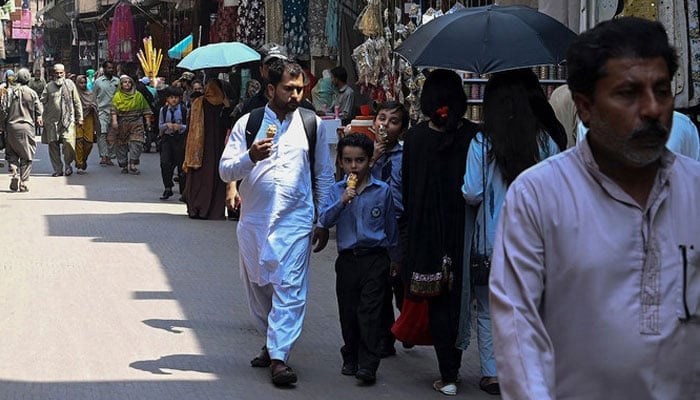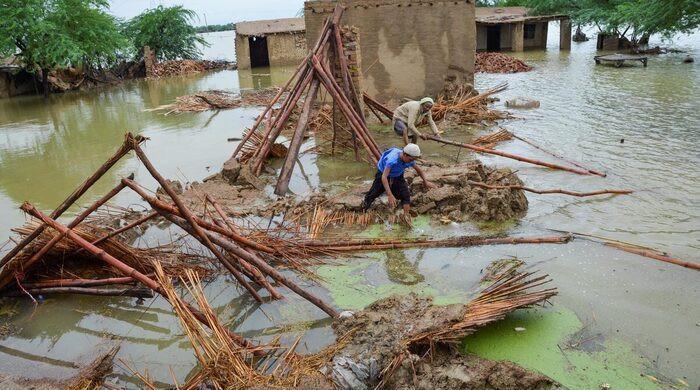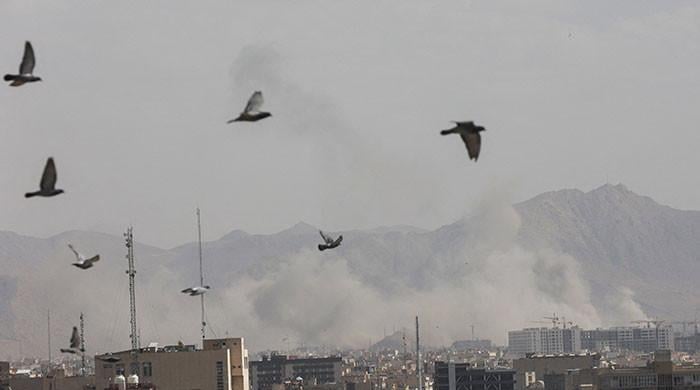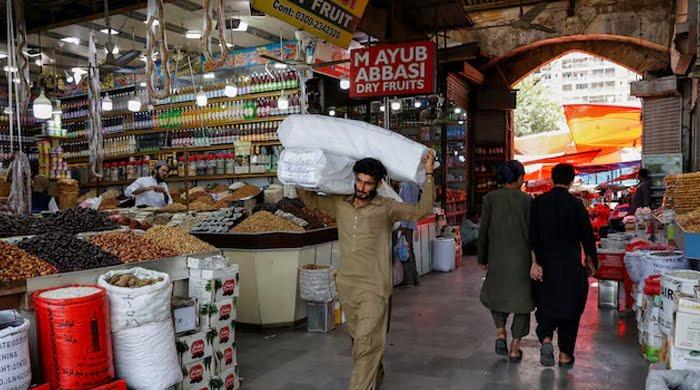Garlands of light
Unity will come through only if the state owns up to its people and gives them the space to nurture their dreams and pursue their ideals
August 02, 2025

Hope, they say, is an undying phenomenon. Even in the worst of times, it finds a way to ignite itself and spread its rays around.
But there is another reality that one is constantly confronting, which is the transience and impermanence of life. Nothing stays the same for long. Life presents a fleeting picture of what may or may not be, and there is little that one can do to alter that. Its impermanence is the only permanence that one knows of. One cannot grapple with this reality, which manifests one’s fate transcribed in the minutest detail.
It is between the withering away of life among traces of undying hope that one weaves one’s nest to survive. It is a delicate balance to maintain, and with every passing day, one keeps learning its various facets to maintain a semblance of predictable order to propel one’s ideals and sustain one’s ambitions.
But it gets excruciatingly difficult at times when the dark seems to get darker and the hope of tracing light increasingly dimmer. That is when one digs in deeper to hang in there for things to change. But, even in the worst of circumstances, one cannot allow hope to slip out of one’s grasp. It becomes your lone saviour to sustain you.
Hope builds an inner resolve to fight adversity. When I was admitted for my cancer treatment, I remember my doctors sitting across from me, trying to make me understand the consequences of chemotherapy and the belittlements that it would cause. After over an hour of briefing, the lead doctor, by way of assurance, said that they would do everything that was medically possible, but, tapping his head with his finger, he said, “We want you with us from here”. He was talking about the undying spirit within and the need to keep it resurgent.
Through the worst phases of my prolonged treatment, I remember I had to struggle desperately hard to keep that hope alive that I would someday walk out of the hospital on my feet. What role this factor ultimately played in my treatment is difficult to gauge, but let it be said that, without igniting this inner resolve to live, the struggle may have been much more difficult and the chances of surviving the cancer ordeal much more daunting.
The onset of a state of despondency is a natural phenomenon of living. One encounters situations and undergoes experiences which dent one’s faith and impact one’s resolve. This experience is even more common in the lives of nations that experience fluctuations in freedom and growth, depending on the levels of freedom they enjoy and the prospects of growth made accessible by the state. Ideally speaking, encountering difficult times should not lead to a diminishing of freedoms. On the contrary, these should be increased so that people can create more opportunities for making progress in life.
While freedom is an inalienable right of every citizen, it is also a sacred trust that the state reposes in its people for their personal good and for the good of the larger community of people inhabiting a country. It grants them the opportunities to associate and engage among themselves to generate a resurgent spirit that would help them to negotiate adversity with courage and dignity.
A lack or loss of freedom would become a drain to carry, and many a soul would perish in the effort. Under no circumstances, not even the most stressful that a country may be faced with, would this provide the right environment for sustaining through crises.
Patriotism cannot be forced through depriving people of their freedoms. The contrary may be the outcome emanating from a loss of faith in the state and the exercise of laws by virtue of which they are deprived of their constitutional rights. This approach then becomes an irritant which creates disharmony and can potentially weaken the country. Unity will come through only if the state owns up to its people and gives them the space to nurture their dreams and pursue their ideals within the parameters defined by the constitution.
Pakistan has had a chequered history of relations with its people. Their freedoms and rights have been the first target whenever they have been faced with any form of adventurism. This emanated from a fallacious perception that peace would accrue if people were kept caged. This has never worked, but somehow, the perception has lingered over decades, through both military and civilian rules, which has not only impacted the trust that people should have in the state but has also dented people’s resolve to withstand adversity with courage and conviction. Instead, they have looked for shortcuts to success, encompassing indulgence in a variety of corrupt practices.
We are at a low ebb of our existence. The state’s bond with its people is shaky, and no effort is directed towards rebuilding it on sustainable ground, whereby people will be allowed their freedoms as enshrined in the constitution, so that they can generate opportunities for themselves and their families to move on in life. When a state is confronted with challenges, internal or external, the scope of these freedoms should be increased, not diminished. This will bolster the spirit of the people, who will then engage more readily in tasks of nation-building.
The challenges of the past, as well as our endeavours to deal with them, should have taught us one cardinal lesson: restraining people’s energies through imposing restrictions on their constitutional rights is grossly counterproductive. It drains a nation of its most vibrant reservoir of energy embedded in its people. They need to be free, and they must know that they are. That is the way to build a nation, bound together by a chain of deeply embedded values.
It is only when people relish their freedoms that they will live their hearts out in serving the interests of their country. When hope is lost, catastrophe follows.
Let my feelings echo forth in the inimitable words of Faiz Ahmad Faiz: “The dawn of the sorrowful and the stricken/ Does not appear in the skies./ Where we stand, you and I,/ A bright horizon shall emerge from here./ Here shall unfold the sparks of sorrow/ Like an oasis of morning glow./ And here the axes of murderous inflictions,/ Lined up in multiple neat rows,/ Shall become the fiery garlands of light.”
The writer is a political and security strategist and the founder of the Regional Peace Institute. He is a former special assistant to former PM Imran Khan and heads the PTI’s policy think-tank. He tweets @RaoofHasan
Disclaimer: The viewpoints expressed in this piece are the writer's own and don't necessarily reflect Geo.tv's editorial policy.
Originally published in The News











